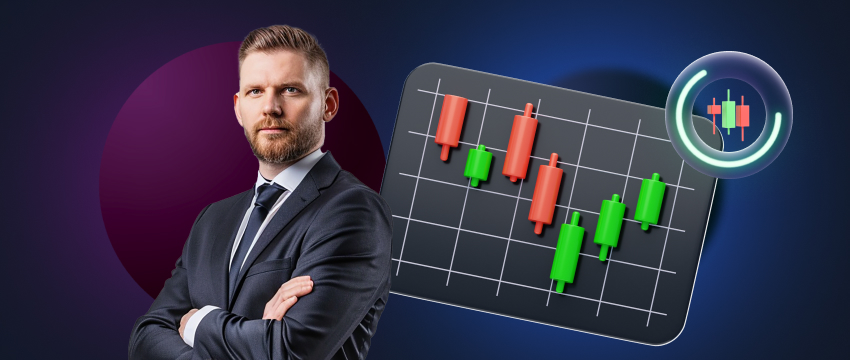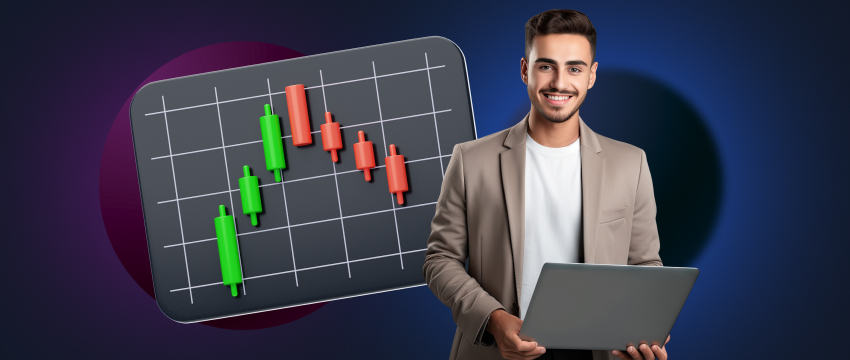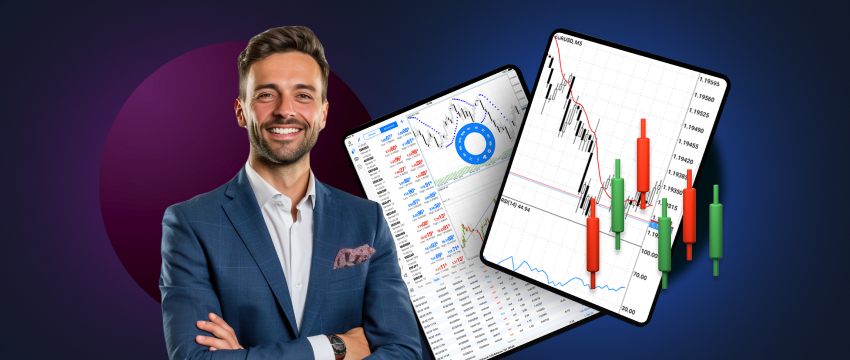A CFD broker acts as an intermediary between traders and the financial markets, allowing traders to speculate on price movements of various assets through CFDs (Contracts for Difference). Unlike traditional investing, CFD trading does not require ownership of the underlying asset, enabling traders to profit from both rising and falling markets.
CFD brokers earn revenue through spreads (the difference between buying and selling prices) or, in some cases, from commissions on trades.
Understanding CFDs
A CFD is a financial agreement between a trader and a broker that allows traders to speculate on the price movements of various assets without actually owning the underlying asset.
Instead of buying the asset itself, the trader aims to profit from the difference between the opening and closing prices of the trade.
Basically, you speculate on whether the asset’s price will rise or fall. If you correctly predict a price increase, you can go long (buy), and if you expect the price to fall, you can go short (sell).
If the market moves in your favour, you earn a profit; if it moves against you, you may incur a loss.

Trading with a CFD broker
There are several reasons why traders choose to trade CFDs with a broker. Let’s look at a few of these.
1. Leverage for greater market exposure
CFDs allow traders to control larger positions with a smaller amount of capital. This can increase profit potential, but it also increases the risk of greater losses.
2. Access to multiple markets
CFD brokers offer access to a wide range of markets, including currencies, ações, índices, commodities, e metais.
This broad market exposure helps traders find more opportunities and allows them to diversify their portfolios.
3. Trade in both rising and falling markets
Unlike traditional investing, CFD trading enables traders to capitalise in both rising and falling markets.
They can take long positions when they expect prices to increase or short positions when they expect prices to fall.
4. Hedging against potential losses
Many traders use CFDs for hedging against potential losses. For example, if they hold a long position in a stock, they can take a short CFD position to protect against a downturn.
5. Lower trading costs
CFD trading is generally considered to have lower costs compared to traditional trading as it often comes with lower or zero commission fees for executing trades.
6. Competitive Spreads from CFD Broker
CFD brokers offer competitive spreads, which can influence profitability. However, with so many options available, finding the right broker can be challenging.
Is CFD trading risky?
As with any other form of trading, CFD trading carries risks. This is mainly due to the use of leverage. Financial markets can be very volatile, with asset prices fluctuating rapidly and often unpredictably. If the market moves against your position, losses can become larger especially when leverage is involved.
This is why effective risk management is important to protect your money. Using tools like stop loss and take profit orders, as well as maintaining more sensible position sizes, can help protect your capital.
Additionally, avoid overtrading. Just because you can trade larger positions with leverage doesn’t mean you should exceed your budget. Staying disciplined and controlling exposure to risk is key to long-term success.
Avoid excessive trading behaviour as it can put your capital at significant risk. Remember that a CFD is a contract between you and the broker.
If the broker defaults on its obligations, your funds could be at risk. This is why choosing a reputable and trustworthy CFD broker is important for safeguarding your funds.

How to reduce risk associated with CFD trading
In addition to using stop-loss and take profit orders and practising optimal position sizing, there are other effective ways to reduce risk in CFD trading. Here are 3 practical strategies:
Invest in trading education with CFD Broker
- A solid understanding of mercados financeiros and the factors influencing price movements is crucial for any trader.
- Staying up to date with market trends and changes needs continuous learning.
- A trading-related education includes: blogs, guides, videos-on-demand, e-books, podcasts, webinars, or online community forums.
- Many of these resources are free, and offer many different ways for CFD traders to improve their knowledge and decision-making skills.
Practice with a demo account
- One of the most valuable ways to learn is by using a demo conta de negociação. You can practice trading in a risk-free trading environment using virtual funds.
- This helps you become more familiar with market conditions, and it provides the chance to test different strategies, use technical or fundamental, and apply risk management techniques – without the risk of losing your own capital.
Strengthen your trading psychology with right CFD broker
- Emotional control is a key aspect of successful CFD trading. Market volatility can trigger strong emotions like o stress, o medo, a ansiedade, greed, which can cloud judgment and lead to impulsive decisions.
- Managing these emotions effectively requires developing emotional resilience. This involves being aware of what triggers certain behaviours and learning to manage them better.

Choosing the right CFD broker
Selecting the right CFD broker is one of the most important steps for any trader. There are several criteria to consider in your selection, some of which we’ll discuss below.
Firstly, make sure that the broker is regulated by a reputable financial authority. This provides a level of security and trust, as regulated brokers must adhere to strict financial standards.
Next, consider the trading platform offered by the broker. It’s important to evaluate how easy it is to use, functionality, navigation, and the range of tools and features available.
A good platform will provide traders with useful analysis tools to help them make informed decisions. Where possible, sign up for a demo trading account to test out the platform before committing to real trading. This will allow you to get a feel of the trading experience you can expect.
Also, look at the range of assets the broker offers access to. Make sure they provide the markets you’re interested in, whether it’s stocks, commodities, forex, metals, futures, or indices.
Apoio ao Cliente is another essential factor. Check out their customer service by reaching out via email or their Live Chat, if they have it. Ask questions about their services to assess their scope of knowledge and response time.
Look into the educational resources offered by the CFD broker as these will indicate their commitment to helping you improve as a trader.
Evaluate the spreads the broker offers, as well as the speed and ease with which they execute trades and handle withdrawals or deposits.
Also, consider the range of trading accounts they provide. Do they match your specific trading needs, goals and budget? Are the account types suited to your level of experience?
In summary
In conclusion, CFD brokers act as intermediaries between traders and the financial markets, providing platforms, tools and leverage to speculate on the price movements of various assets.
While CFD trading offers great opportunities, it also comes with risks. Choosing a reputable CFD broker that will help you manage these challenges is essential. So do your homework and choose wisely.
AVISO LEGAL: A informação disposta não deve ser interpretada como consultoria financeira ou recomendação de investimento, sendo apresentada apenas para fins de comunicação e marketing.





